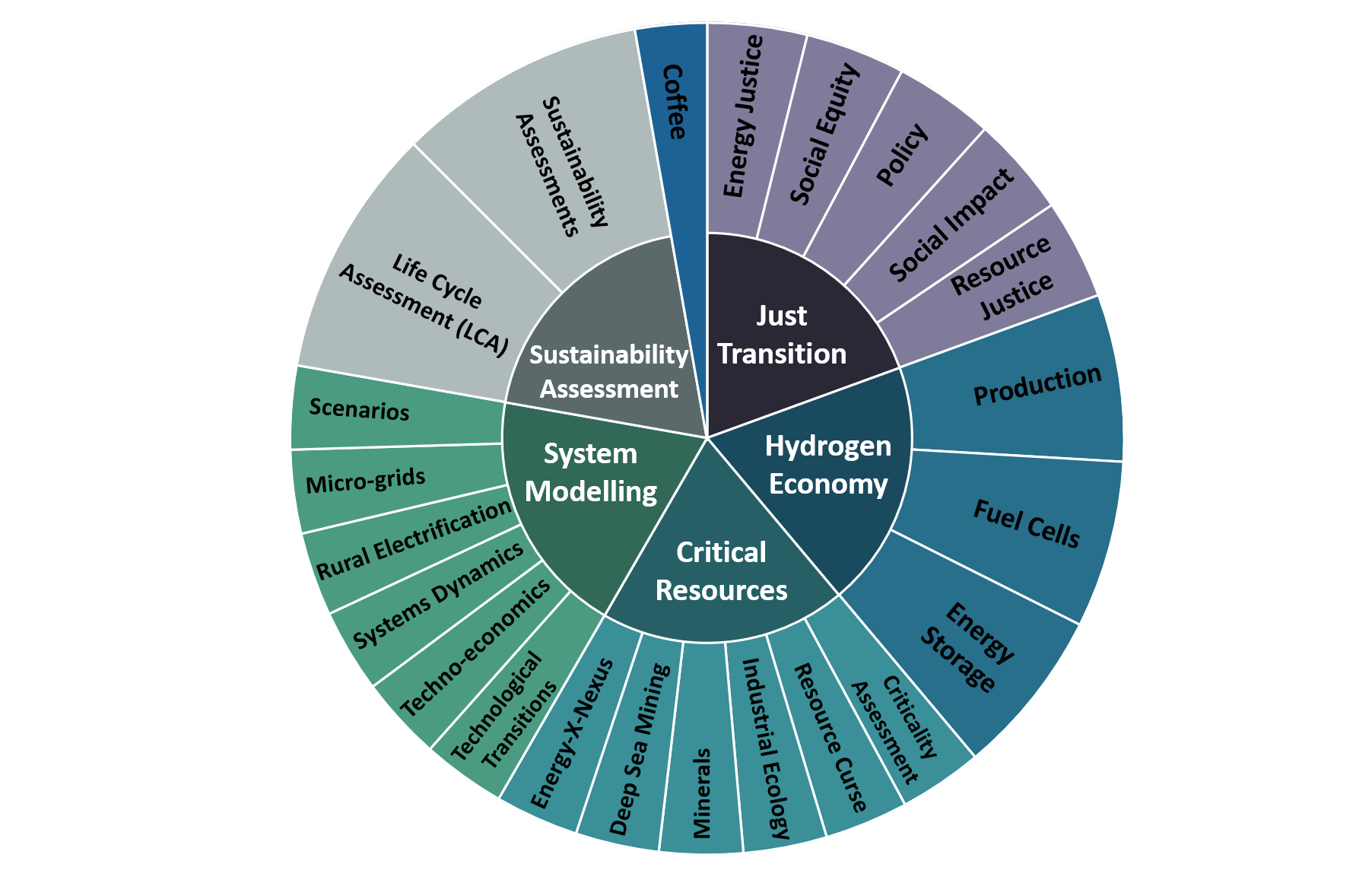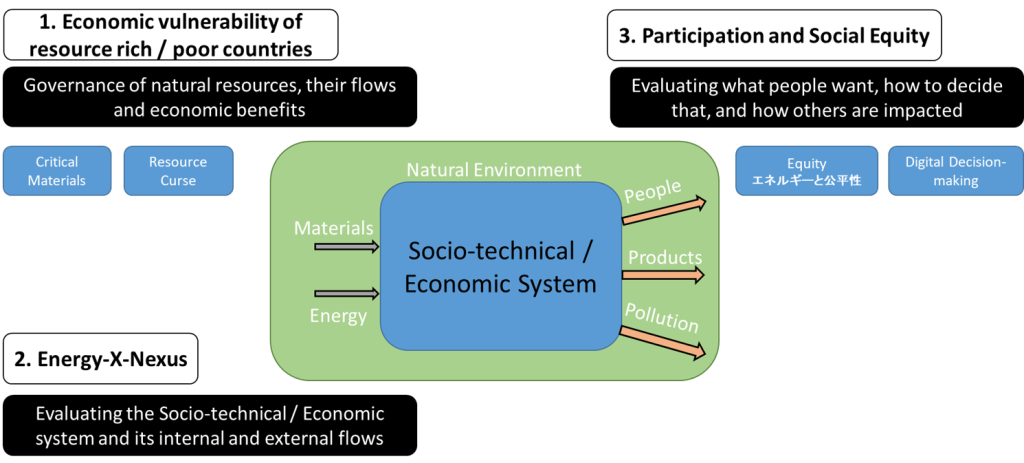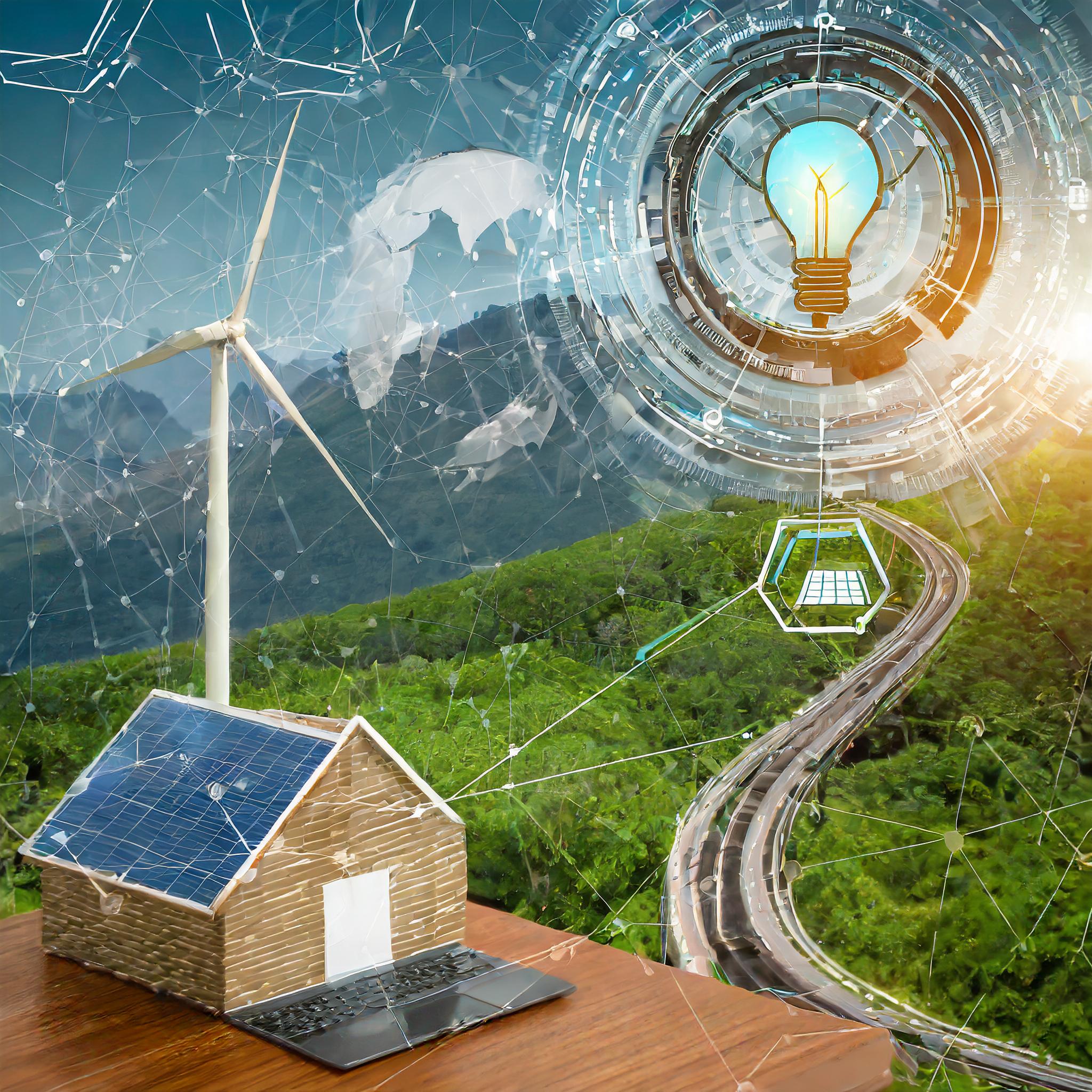
More information…
Outline of our research
The “Energy Economics” Laboratory, in the Department of Socio-Environmental Energy Science conducts research from three main viewpoints: the first is “technology” for energy supply and demand, consisting of the components of the energy system and their operation. The second is the “society” in which that energy is consumed, considering how individuals and groups or sectors of the economy behave in causing demand, how they react to signals given through changes in the price of energy or in indicators related to their preferences, and how sectors of the economy react and interract. The third perspective is “resources and the environment”, which considers the supporting systems on which our societies and energy systems rely – resources providing inputs to the system, and the environment dealing with the outputs. Our research activities have the common goal of designing a framework that realizes a sustainable energy system for houses, buildings, cities, Japan, Asia and even the world from the perspectives of natural, human and social sciences.
To realize a “sustainable society”, we must consider and evaluate future scenarios from both a macro and micro perspective to establish an appropriate decision making framework.
In the field of Energy Economics, societal conditions and economic systems are assessed to determine the appropriate planning and policy approaches to realize our goal of a desirable societal system. We conduct research in the academic fields of energy economics and energy systems. Our main themes of research are:
- The modelling, assessment, analysis and evaluation of the energy supply and demand system at various scales and using case studies of various countries.
- Modelling of microgrids and the policies and methods for enhancing their viability – particularly in developing countries.
- Modelling of the Energy-X-Nexus, in which X is another important support system for society – resources, minerals, water, food, land, etc. – and in which the interaction and overlap with energy systems can provide potential trade-offs and synergies to improve overall system performance.
- Critical mineral assessment in the development of future energy scenarios. Considering the supply of minerals to meet the demand of a decarbonising world with demand from various clean energy technologies.
- Social equity and Just Transitions – evaluating the impacts and benefits of alternative transition pathways, to help guide policy and technology development that leads to the most positive societal outcomes that leave no-one behind. Including methods of participative deliberation and the resource curse implications for resource producing nations.


The Graduate School of Energy Science Energy Economics lab performs research across a broad range of interesting topics ranging from Renewable Energy Policy, Resources, and Social Equity to Technology specific solutions to Energy Econometrics!
Please have a look at our research lab members and their specific research topics – and if you are interested in our work – please come and join us at the Graduate School of Energy Science at Kyoto University!
See also:
